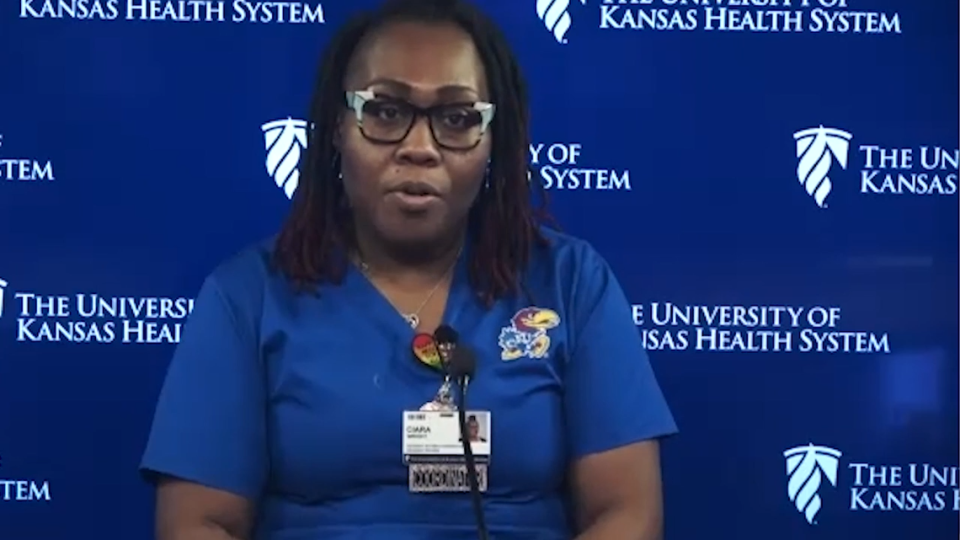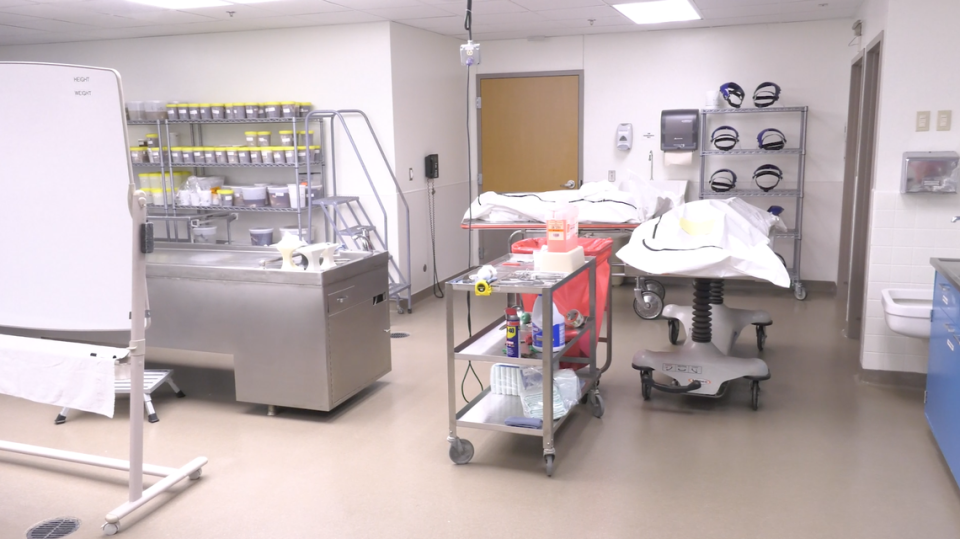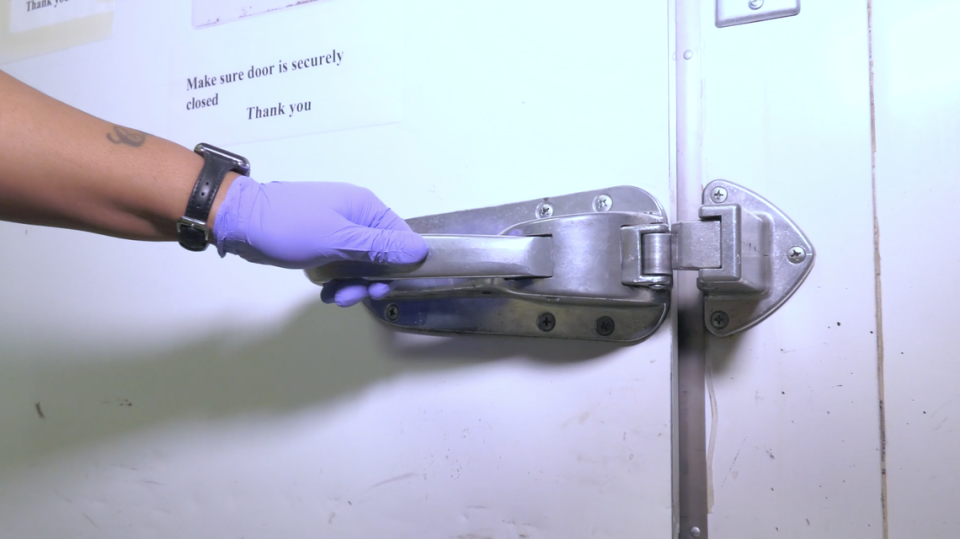Kansas City area hospital worker helps families grieve after unexpected COVID deaths
- Oops!Something went wrong.Please try again later.
Families of patients who died of COVID-19 have made some simple requests which might seem inconsequential, but Ciara Wright with the University of Kansas Health System is willing to fulfill those wishes to help bring some comfort.
Leave the lights on because because their loved one was scared of the dark or place them in a room with others because they wouldn’t want to be alone. Sometimes it’s that last chance to say goodbye.
“I will take a phone into the autopsy room with a patient and just let the family talk, ” said Ciara Wright, decedent affairs coordinator with the health system. “This is the last contact that they may have before the patient goes to the crematory.”
If it helps somebody feels at ease, Wright said she’s willing to do it.
“One of the most devastating things I think we work with down in decedent affairs is seeing our patients come into the morgue and they’ll have like a suitcase, they’ll have things that they were expecting to go home with,” Wright said. “It kind of bothers us that this patient is now going to the funeral home or crematory versus going home.”
With older patients, families are a little more prepared for deaths. But for families of the younger patients who die, they are in a “different head space” because their loved one was thriving and had goals they wanted to achieve.
“We try and help them the best way we can,” Wright said. “And sometimes it’s just listening.”
So far this month, 29 patients have died at the health system, which reported a record number of COVID patients on Friday. The hospital has a total 203 patients with the virus. Of those, 28 are in ICU with half of them on ventilators.
The highly contagious omicron variant may continue to cause record-breaking case numbers in Kansas City for weeks to come. As of Friday, the rolling seven-day average of new COVID-19 cases across the metro area is around 3,795 per day, according to data tracked by The Star. That’s a little higher than last week’s average of 3,649.
The total number of cases in Kansas City metro is up to 315,729 since the start of the pandemic. So far, 3,671 people from the Kansas City area have died from COVID-19.
Wright started with the health system in 2017 working for another department as a certified nursing assistant. She left the health system for a few months before returning. She earned four degrees, including her doctor of philosophy, since 2019 and is now the coordinator of Decedent Affairs.

“I always wanted to be surrounded around a department that I can help people and that is unorthodox to most people,” she said. “I had a loved one pass away here and I just wanted to kind of help people that are grieving deal with the end of life situation a little bit better than how we dealt with it.”
Since the start of the pandemic, things have changed dramatically for her department. One of the biggest is the increased volume of deaths. Prior to COVID, there may be two, maybe three, patients waiting for her when she arrived to work. Some days, it was only one. Now, however, there’s a lot more.
Now, there’s multiple patients a day. The morgue has room for nine patients. When those are filled, they have extra carts and the autopsy and transport tables to hold them.
“We just have to get creative to store our patients,” she said.

While it’s two years into the pandemic, everything is still pretty new, she said. They are continuing to adjust and adapt.
One change is the need to double bag COVID patients and write “COVID19 +” in large letters on the bags so whoever takes the bodies to the funeral home is aware and knows to take precautions.

They are also dealing with families who have expressed that “this was not supposed to happen,” their loved one didn’t get vaccinated because they didn’t believe COVID was real or they were waiting to get vaccinated until they did their own research.
For some, the grieving process doesn’t start until they can see their family member. So Wright will gather the person’s belongings and let family pick them up so that they can see the items.
“If it makes somebody feel at ease, then I’m going to do it,” she said.

Wright, who contracted COVID, suffered a collapsed lung because of it and continues to have some health issues, said the disease has brought people together and divided others.
“I understand that people have their thoughts that this isn’t a real thing, but it is a real thing and people are losing their lives over this,” she said. “Everybody has to do what’s best for them, but you know, you just don’t want it to be too late.”

